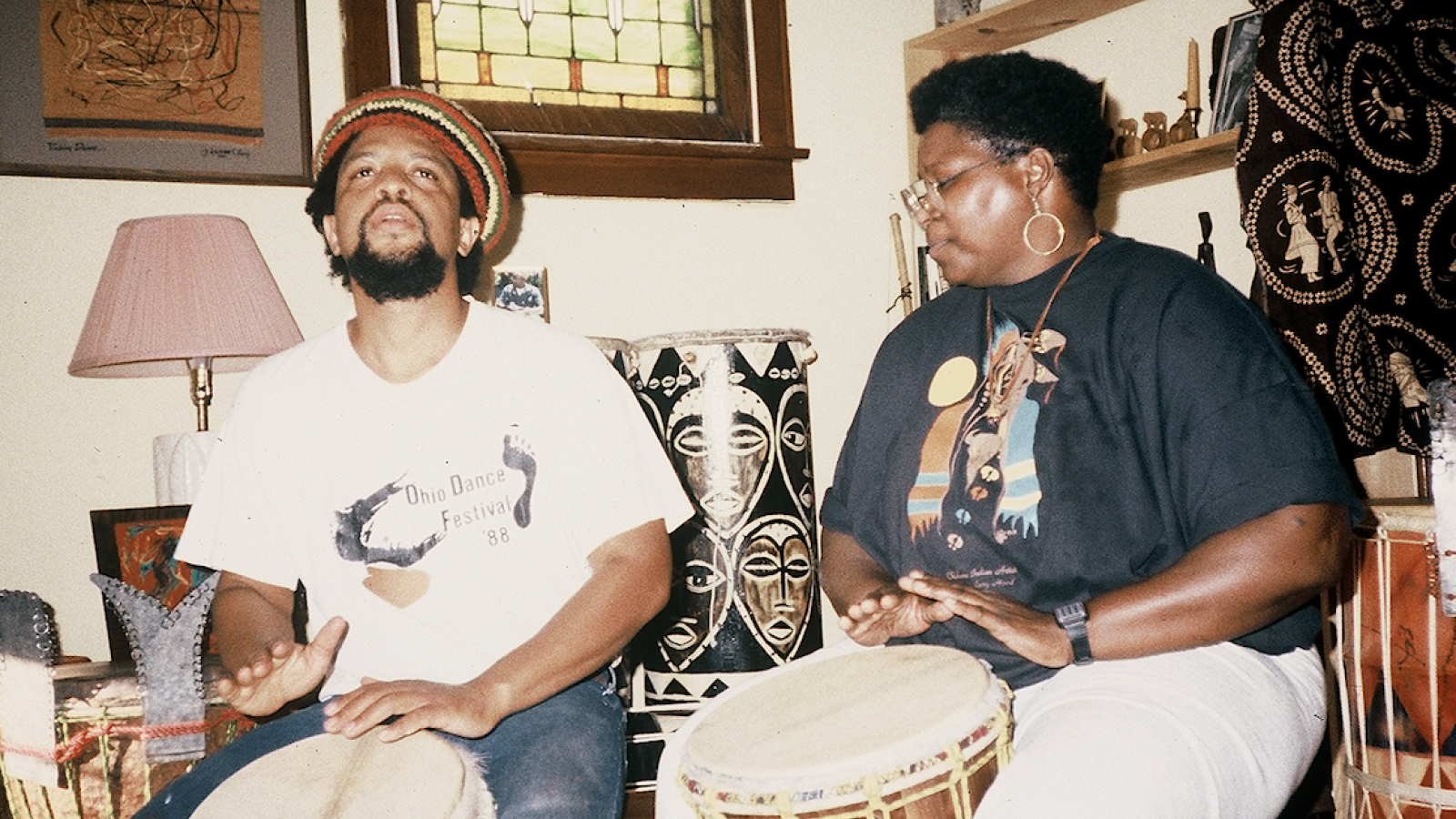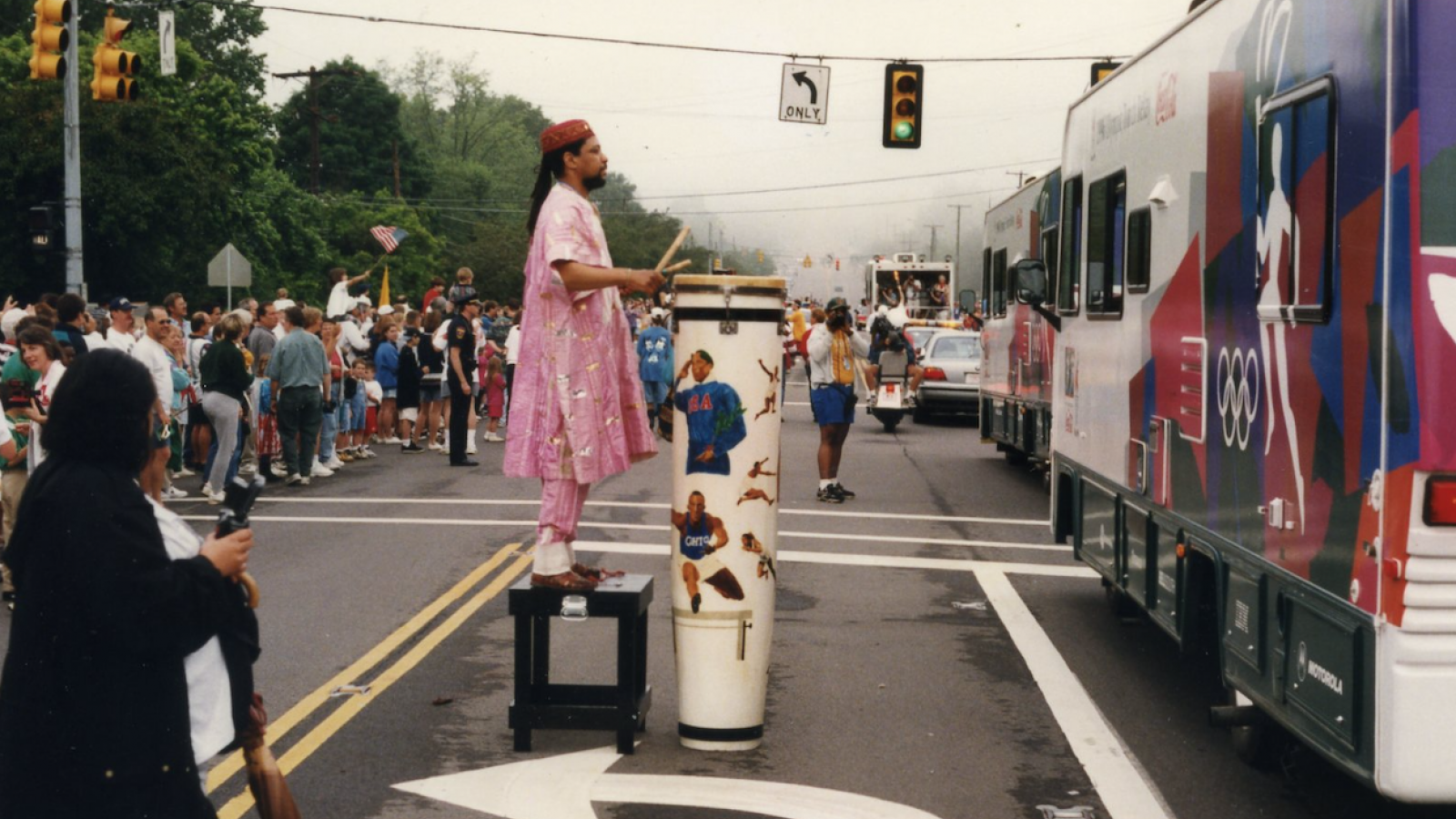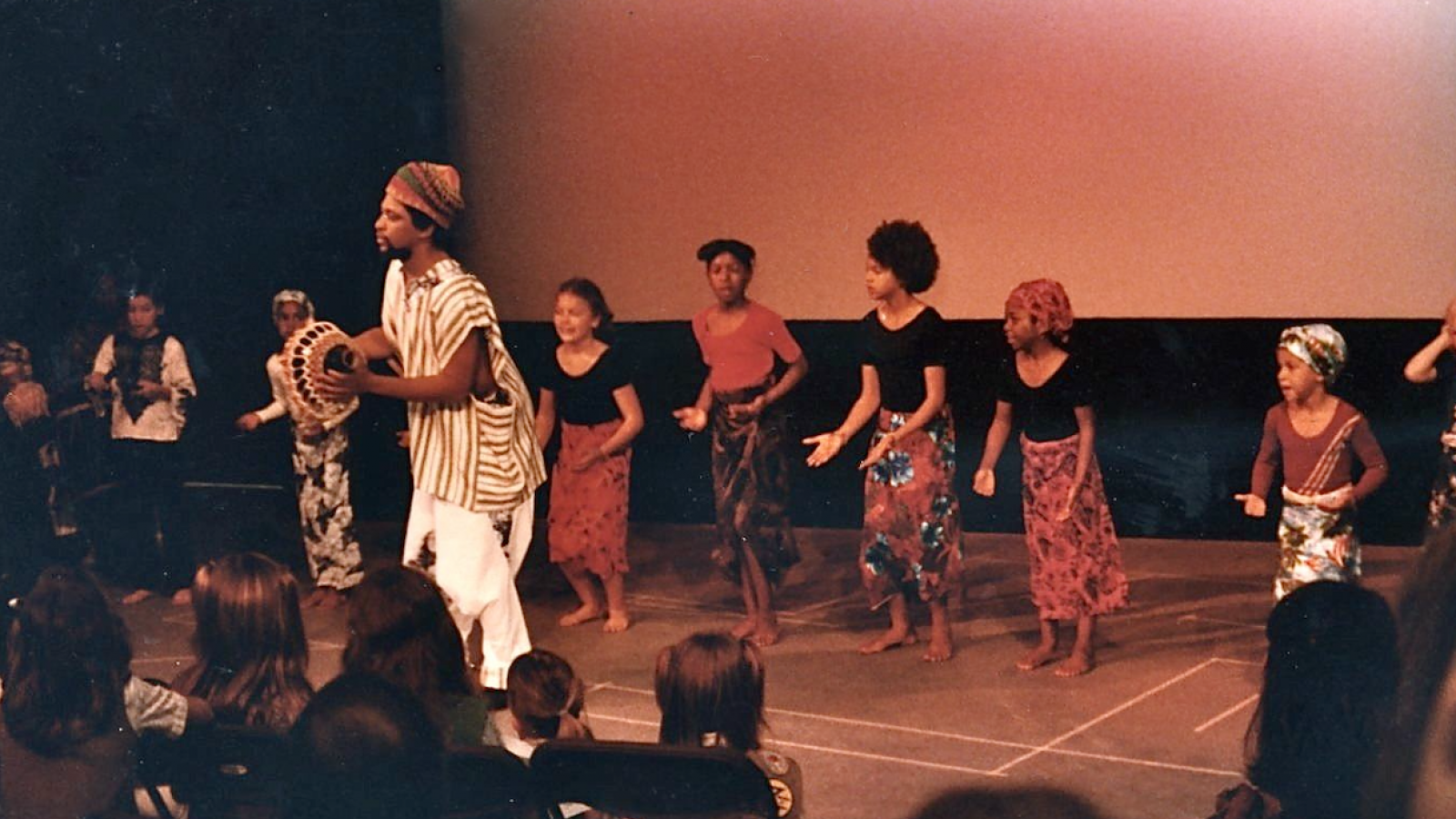Baba Jubal Harris
“In 1968 a group called “The Pharaoh’s” an African centered performing arts ensemble from Chicago, performed for the first University of Cincinnati Black History Week Celebration, included in that group was The Darlene Blackburn African Dancers from Chicago.They had drums… traditional African drums that they played for Darlene Blackburn. And that was the first time I saw African dance and African drumming in its entirety. That was it. I just felt really compelled to learn how to do that and to explore what that was all about. Because,I had no idea of the depth of the history and the culture and the cultural retentions that we have as African Americans and I wanted to really get a clear understanding of it, how it related to me personally through my family line and how it related to my community and, to make sense out of it. At that time, especially going through the sixties period, well, the forties, fifties, and then the sixties , I began to get information about the cause of the social and economic conditions that were so oppressive in the black community. Growing up, although I was… I was affected by it, I didn’t know… I didn’t know to what extent, because being a child, you know, you make the best of whatever environment you’re in and you do what you can to um, you know, I mean, you’re actually oblivious to a lot of what’s going on around you. As I began to get older and try to gain some understanding about racism, war, because now we’re moving into the Vietnam era. There’s political, social, economic , forces that are at work. And these forces have been at work for a long time. So, historically, I’m looking, now I’m beginning to look back and see, how… In time, slavery had stripped me, my family, uh, the people that I loved, people that I knew of a certain um, knowledge. Who are we really? Who are we? And that question, who am I, began to surface in my mind. I started looking for avenues to find the answer to that question. And being involved in music and being involved with the drum, I saw there was a… there’s some type of a continuity that’s going on in these rhythms. There’s a binding force that seems to be able to transcend these social conditions, to transcend these um, feelings of oppression, the feelings of being um, labeled as a second class citizen or being given a position in society that is not on the same par with white people and with other people in the privileged ruling classes of the society that I am living in." (Edited transcript excerpt provided by the artist)
Born in Cincinnati, Ohio, James Baba Jubal Harris was exposed to Afro Caribbean drumming in kindergarten.At the age of 13 he became a student of Julius Renford "Flash" Ford. His drumming is inspired by both African and Caribbean rhythms. He is also a master drum-maker, practicing a traditional drum-making process that has been handed down from the Bambara and Mandinka peoples of West Africa. Harris led over 1200 drummers to honor Jessy Owens and celebrate the 1996 Olympic Torch Relay in Worthington, Columbus and Cleveland Ohio establishing an American record. He was awarded the Ohio Arts Council 2015 Ohio Heritage Fellowship for Material Culture. In his drum-making, he uses wood and other materials imported from Africa and follows traditional hand-crafting methods, building each drum himself. At his home workshop, he put together what he calls the "Solar Drum Project," which uses solar panels and marine batteries to power everything required for the drum making process. Teaching at local schools, Harris uses his “One World Rhythm” workshop to demonstrates how science and music come together. He has also conducted drum-making workshops, held art education residencies throughout Ohio, and founded the Heartbeat Drum Circle, Ohio's largest annual public drumming event. The Heartbeat Drum Circle brings together over 300 drummers from around the United States, making it an important social gathering in Cleveland.
"South Euclid man makes a life by joining music and science"
Baba Jubal Harris's Traditions episode.
Contents of the Collection
- Images of Harris performing at the Olympic torch rally, 1996
- Images of Harris playing in the Heart Beat Drum Circle
- Step-by-step video demonstration of Harris constructing a traditional African drum, with commentary



